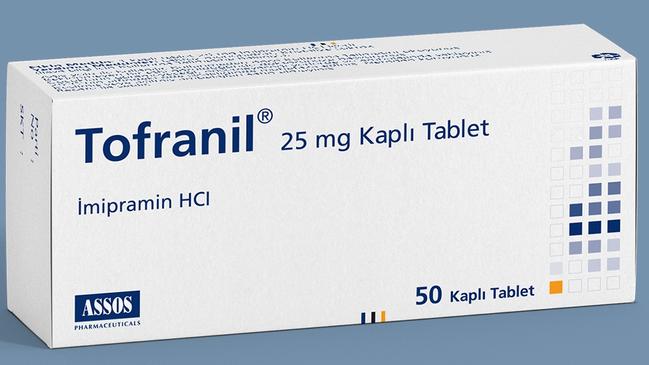Full list: Medicines in critical shortage of supply in Australia
The number of life-saving medicines in short supply in Australia has blown out to 380 so far. See the list and see if you are affected.
National
Don't miss out on the headlines from National. Followed categories will be added to My News.
Life-saving drugs, like blood thinner Warfarin, adrenaline, antibiotics and cancer treatments are unavailable as Australia’s medicines’ shortage worsens.
The number of drugs in short supply has blown out from 365 before Christmas to 380 this month.
And the shortage of 45 of these medicines is listed as critical by the Therapeutic Goods Administration (TGA).
The crisis is deepening despite the fact that Australians began paying more for 900 common medicines on October 1 last year in return for the medicines industry guaranteeing six month’s supply of medicines would be stored in the country.
Under the changes, some medicines, like heart failure drug Candesartan went up in price. It used to cost just 43 cents per pack per month but its ex-manufacturer price rose to $2.50 in October.
While drug companies have been benefiting from the extra money, they don’t have to ensure four to six months’ supply until July.
The ongoing shortages mean they may be unable to fulfil that commitment for some medicines even when the new rules take effect.

Chemist Warehouse chief Mario Tascone said the shortage of anti blood clot drug Warfarin was a major problem.
“This medication needs to be taken every day and that’s why if someone is out of it, they can’t find it anywhere, they need to speak to a doctor right away and see what the doctor suggests for the for that interim period,” he said.
Pharmacists have had to think outside the box, substituting other doses of the drug to make up a full dose.
“We’ve been mixing other strengths and doubling up on other strengths if need be,” he said.
However, now the 2mg version of Warfarin was in short supply, complicating the mix-and-match approach.
But Mr Tascone said supplies of Warfarin were expected to increase next week.
Consumers health Forum chief Elizabeth Deveny said patients were raising the issue of medicine shortages as a growing problem.
“It is really stressful for people to have to go from pharmacy to pharmacy trying to fill a prescription for medicines that once were readily available,” she said.
“We know that many of the issues originate with overseas supply chains but this is of little comfort to consumers who rely on these medications.
“We encourage consumers to have a look at the TGA website to check the status of particular medications and also get advice from their GP or pharmacist about possible substitutions for medications that are out of stock.
The Generic Medicines industry said it was working hard to increase medicine stock.
“Right now, GBMA (Generic Biosimilars Medicines Association) members are investing millions of dollars in additional stock and infrastructure to create buffers of 4-6 months,” the association said.
But the association denied that stockpiling ahead of the July 1 start date of the new rule is the reason behind the shortage.
“This preparation work, however, is not what is creating the existing shortages of some medicines. Where medicines are available in country, they are supplied immediately to Australians who need them, when they need them,” the association said.
The GBMA said if there was an issue securing the supplies due to international and manufacturing issues beyond their control ahead of the July 1 start date of the new policy, “our members will continue to collaborate with the TGA to find a workable solution.”
Under the agreement with the government the minster has discretion to penalise companies that can’t meet the four to six month supply requirement by delisting their product from the pharmaceutical benefits subsidy scheme or he could stop the company listing other brands of their medicines.
Health Minister Mark Butler said the COVID pandemic had exacerbated a worldwide shortage of medicines.
“Unfortunately for patients around the world, medicine shortages are unavoidable. They may arise for many reasons, ranging from shortages of raw materials to natural disasters, logistic difficulties, batches of the medicine not meeting applicable specifications, or increased demand. The problem of medicine shortages is not unique to Australia,” he said.
The TGA is aware of shortages and is facilitating supply of alternative medicines as a priority.
In absolute number terms, the number of shortages appearing on the Medicine Shortage Reports Database is actually lower than previous years, it said in a statement. However, there are some very high profile shortages, including a number of antibiotics and diabetes medicines.
“The average number of total shortages reported since 2019 is 446 per month. In April 2020, a peak number of shortages were reported which coincided with the sudden spike in consumer demand for medicines that occurred at the start of the Covid-19 pandemic,” the TGA said.





